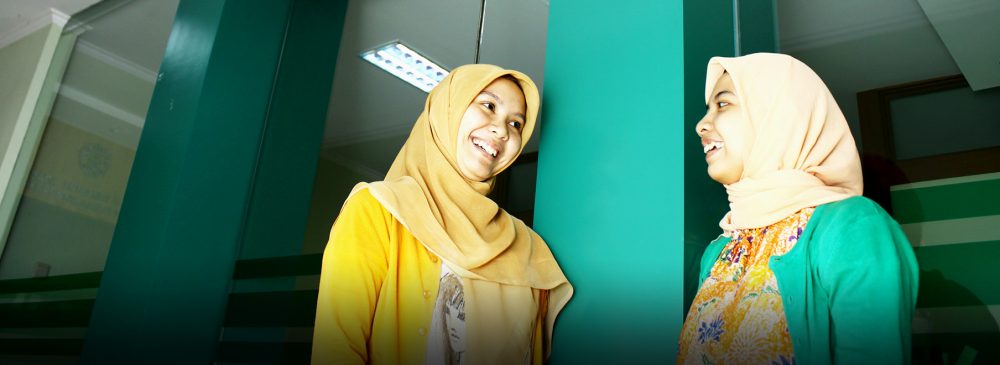
The Bachelor of Economics Study Program was established to meet the needs of the government and the private sector for economic analysts for both macroeconomic and microeconomic studies. Graduates of the Economics Study Program can work as economic analysts in companies or research institutions, bankers, government employees, advocates for non-governmental organizations (NGOs), or continue their studies to become academics.
The Islamic Economics Regular Undergraduate Study Program has the Highest Accreditation of UNGGUL with BAN-PT Decree No. 2798/SK/BAN-PT/AK-ISK/S/V/2021.
To become a leading undergraduate Islamic economics learning center in Indonesia that plays a role in national development and is internationally recognized.
The profile of graduates of the Islamic economics study program is to become an economics graduate who has the ability to analyze economic policies and phenomena in society in accordance with Islamic morals and law (shari’ah compliance) in the Indonesian and contemporary context by prioritizing attitude, superior character, as well as sensitivity and empathy social services in order to improve the quality of life and competitiveness in the international world. Therefore, it is expected that graduates from this study program have the following abilities:
Able to keep up with the latest developments in the field of Islamic economics and skills in their field of expertise.
Able to use concepts, theories, and relevant economic variables/indicators in an Islamic economic perspective to understand and explain economic phenomena in society.
Able to conduct integrated research between conventional economics and Islamic economics to help formulate ways to solve community economic problems with sharia provisions.
Able to work together in the community and able to apply Islamic economics for productive and contributive activities to society, while still prioritizing religious and humanistic nature, universal ethics and morals and high integrity.
The three main competencies profiles of graduates of the Islamic economics study program are as follows:
Field of Work Ability
Able to understand the concepts and applications of Islamic economics and finance and can use them to formulate solutions to problems that occur in society at a procedural level
Mastered Knowledge
Able to understand the concepts and applications of Islamic economics and finance and can use them to formulate solutions to problems that occur in society at a procedural level
Authorities and Responsibilities
Able to understand the direction of the economy and the development of Islamic economics both at the national, regional, and global levels and able to express properly and correctly in order to provide solutions or input to certain cases that occur in society
Able to take responsibility for their own work and be able to be given responsibility in achieving organizational goals
|
No |
Kelompok Mata Kuliah |
Kurikulum Merdeka |
|
1. |
Wajib Universitas |
9 |
|
2. |
Wajib Rumpun |
0 |
|
3. |
Wajib Fakultas |
32 |
|
4. |
Wajib Prodi |
59 |
|
5. |
Pilihan |
44 |
|
6. |
Tugas Akhir **) – Skripsi, atau – Magang, atau – Studi Mandiri + 1 MK Pengganti Tugas Akhir |
6 |
|
Jumlah SKS |
144 |
|
8 Semesters
Website : https://islamicecon.feb.ui.ac.id
Address:
1st Floor, Building B Faculty of Economics and Business
UI Campus Depok
Depok, West Java, 16424
